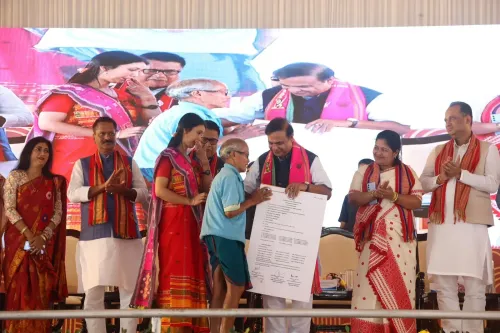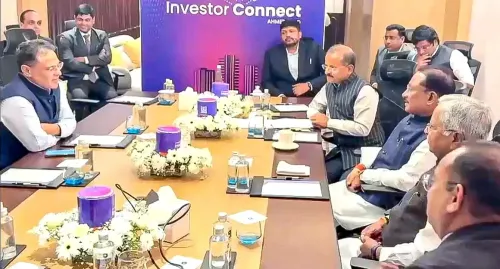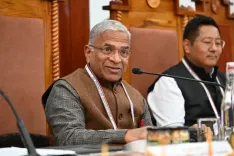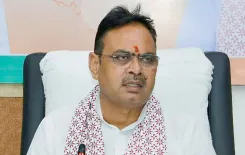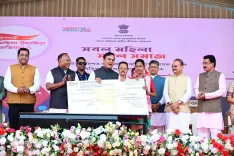Karnataka Government Confirms No Load Shedding This Summer; Power Supply Adequate
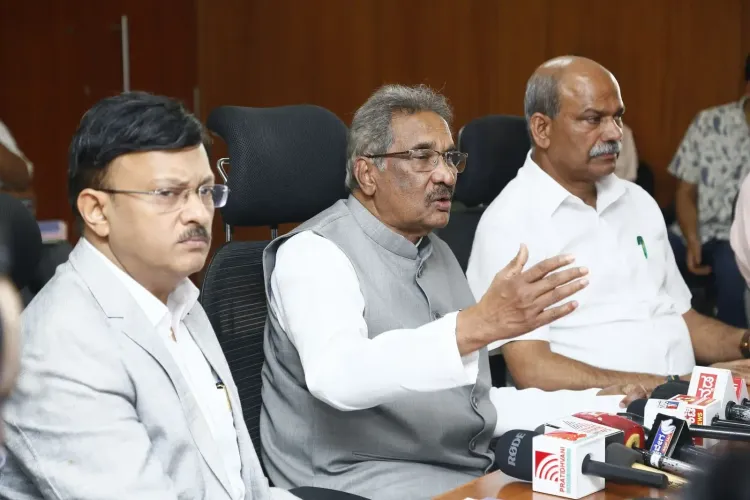
Synopsis
Key Takeaways
- Karnataka's summer power demand projected at 19,000 MW.
- No load shedding expected, assures Energy Minister.
- Farmers will receive seven hours of electricity daily.
- Plans for 100 new substations to enhance distribution.
- Storage projects to prevent future shortages.
Bengaluru, Feb 28 (NationPress) The Karnataka energy department is thoroughly prepared to fulfill the state's demand of 19,000 Mega Watt (MW) power throughout the approaching summer season, and there will be no load shedding, as confirmed by Energy Minister K.J. George on Friday.
During a press briefing in Bengaluru, following a review meeting with senior officials from the Energy Department, Minister George stated, "In the last two months, Karnataka has witnessed a substantial rise in power consumption, leading to an unprecedented demand of 19,000 MW. However, load shedding will not be necessary, as the state is fully equipped to handle the increasing demand this summer."
“The rise in power consumption is also a promising sign of broader economic recovery in Karnataka," emphasized Minister George.
The state possesses adequate electricity to meet the demand, and apart from occasional interruptions due to local technical problems, load shedding will not be implemented, he assured.
The Energy Minister mentioned that farmers' agricultural pump sets will receive seven hours of electricity daily, while industrial and residential consumers will have a continuous 24-hour supply.
“In comparison to last year, electricity demand has surged remarkably. On February 27 of last year, the demand was 16,214 MW, whereas the same day this year saw a demand of 17,874 MW.
“This demand has been satisfactorily met. Likewise, measures have been taken to ensure that there will be no difficulties in electricity supply until the first week of June,” stated Gaurav Gupta, Additional Chief Secretary of the Energy Department, Government of Karnataka.
On Friday, 3300 MW of electricity was generated from KPCL's thermal power stations, 2000 MW from hydroelectric units, 126 MW from UPCL, 6655 MW from solar, and 1940 MW from wind energy.
Moreover, 6183 MW of electricity was received from Central Generating Stations, and 600 MW was acquired from the central grid.
Electricity was also procured from Punjab and Uttar Pradesh on an exchange basis, amounting to 700 MW, he reported.
“To further satisfy electricity demand, an additional 310 MW will be sourced starting March 1. Depending on demand, 100 to 1275 MW will be obtained daily through exchange agreements, and 300 MW will be purchased from Punjab.
“Additionally, 1000 MW of electricity will be acquired daily until the first week of June.
“While Karnataka is generating more electricity than the current demand, there is no storage facility. To address this, initiatives have been decided to implement storage projects, including 2000 MW capacity at Sharavathi Pumped Storage, 1600 MW at Varahi Pumped Storage, 1000 MW at Pavagada, and a 2000 MW battery storage project at Ryapte. These projects will ensure the state does not encounter any electricity shortages," the Energy Minister stated.
In some substations, electricity demand has surged, causing overloading, while in other regions, surplus electricity availability has resulted in underload.
“To tackle this, priority is being given to the link line system. This system redistributes electricity from underloaded substations to those experiencing overload, thereby balancing power distribution.
“The establishment of link lines has already been finished in several areas,” Minister George mentioned.
Although Karnataka has an ample supply of electricity, the challenge lies in its transmission and distribution. To mitigate this, the number of substations is being increased, with plans to establish 100 new substations this financial year.
“Efforts are also underway to resolve most transmission and distribution issues within the next two years. To ensure 24-hour electricity for domestic use, the Karnataka government has launched the ‘Niranthara Jyothi’ scheme. Under this initiative, single-phase electricity is provided at night to benefit those in farmhouses.
“However, farmers have been using converters to operate agricultural pump sets during the single-phase supply, leading to power trips and widespread outages, causing inconvenience to the public,” he remarked.
Therefore, Energy Minister George urged that under no circumstances should IP sets be used with converters for single-phase electricity supply.
KPTCL Managing Director Pankaj Kumar Pandey, PCKL Managing Director Snehal Lokhande Sudhakar, BESCOM Managing Director Dr N. Shivashankar IAS, KREDL Chairman T.D. Rajegowda, KREDL Managing Director K.P. Rudrappiah, Managing Directors of other ESCOMS, and other department officials were present at the meeting.

